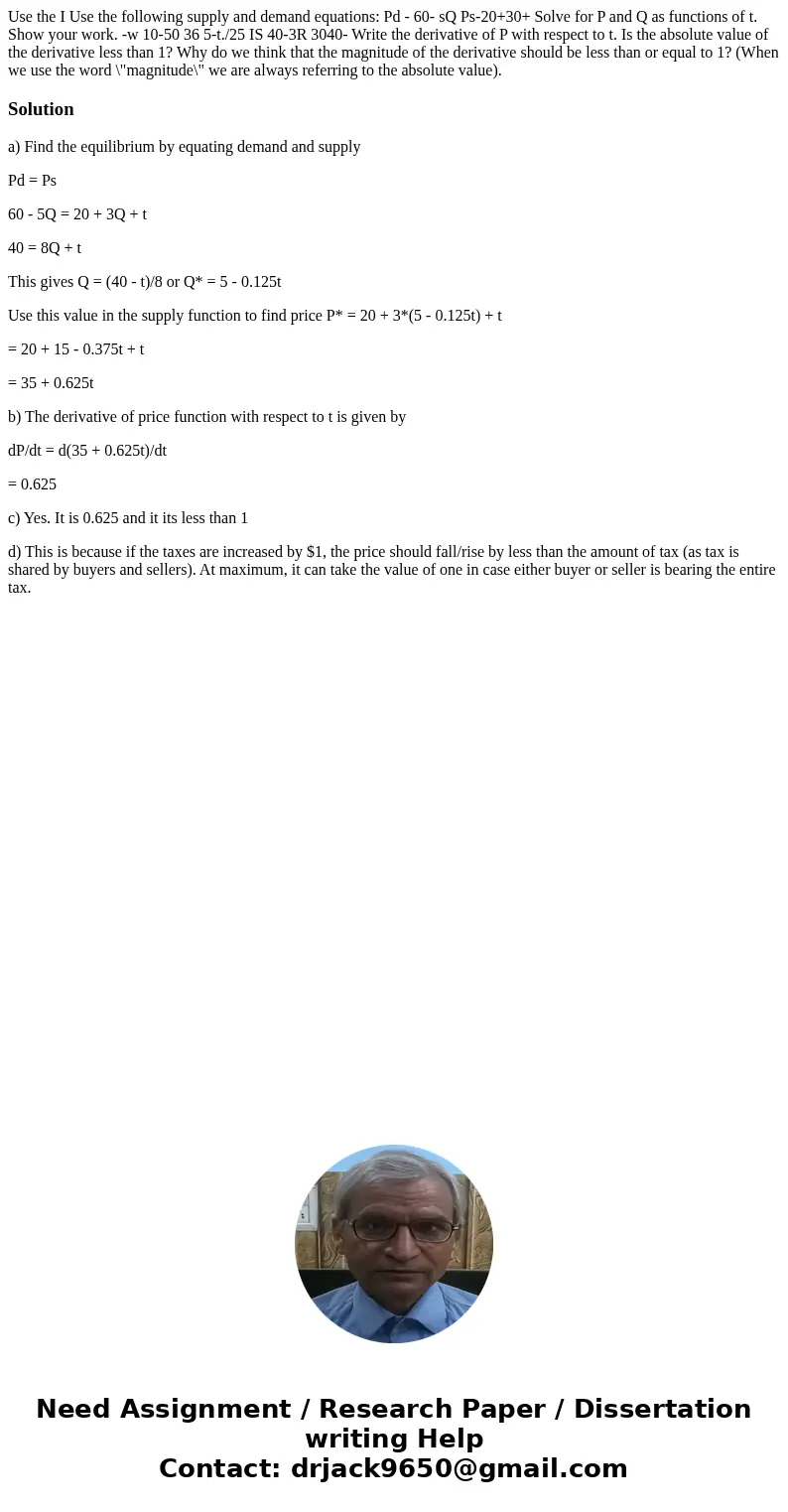Use the I Use the following supply and demand equations Pd
Use the I Use the following supply and demand equations: Pd - 60- sQ Ps-20+30+ Solve for P and Q as functions of t. Show your work. -w 10-50 36 5-t./25 IS 40-3R 3040- Write the derivative of P with respect to t. Is the absolute value of the derivative less than 1? Why do we think that the magnitude of the derivative should be less than or equal to 1? (When we use the word \"magnitude\" we are always referring to the absolute value). 
Solution
a) Find the equilibrium by equating demand and supply
Pd = Ps
60 - 5Q = 20 + 3Q + t
40 = 8Q + t
This gives Q = (40 - t)/8 or Q* = 5 - 0.125t
Use this value in the supply function to find price P* = 20 + 3*(5 - 0.125t) + t
= 20 + 15 - 0.375t + t
= 35 + 0.625t
b) The derivative of price function with respect to t is given by
dP/dt = d(35 + 0.625t)/dt
= 0.625
c) Yes. It is 0.625 and it its less than 1
d) This is because if the taxes are increased by $1, the price should fall/rise by less than the amount of tax (as tax is shared by buyers and sellers). At maximum, it can take the value of one in case either buyer or seller is bearing the entire tax.

 Homework Sourse
Homework Sourse